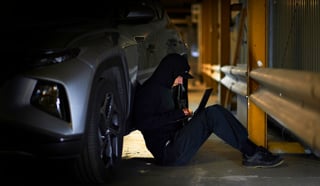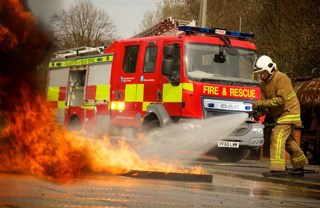The Royal Society for the Prevention of Accidents (RoSPA) in Scotland has teamed up with MyDrive Solutions, an insurance telematics specialist, to launch a pilot project using telematic devices (black boxes) to monitor the at-work driving of young people.
The project, funded by the Scottish Government, aims to monitor and improve the driving behaviour and standards of young people who drive for work. It will run until July 2013 and there is no charge to organisations to participate.
Research has shown that this type of technology can significantly reduce crash rates, levels of risky driving behaviours and fuel and accident costs.
For organisations who participate in the project, RoSPA’s partner MyDrive Solutions will supply and install a black box in cars or small vans driven for work by 17 to 25 year old drivers.
The installation will be carried out by a professional at the driver's house or place of work. The box is fitted underneath the dashboard and there should be no impact on the vehicle's warranty.
The aim of the pilot is to identify how employers in Scotland can best make use of black boxes to help keep their staff and other road users safe. Not only will this help the employer meet part of their responsibility to manage occupational road risk, but it will also improve the efficiency of the business by reducing accidents, fuel and other costs.
This is the first research of its kind in Scotland and the results will be used to promote the benefits of the technology and will act as a drive to encourage other employers to adopt it.
The black box records second-by-second driver analysis data and sends it to MyDrive automatically at the end of every journey.
It provides a detailed profile of each individual driver's driving style, habits and capability, thus allowing the risk to be assessed accurately. A web portal will also be set up so an employer and its drivers can view the results and access further advice.
Following the pilot, RoSPA will publish a report to show how the black box technology has helped to identify real-life driving habits of at-work drivers, as well as a best practice guide for employers on the use of the technology.
Kathleen Braidwood, road safety officer at RoSPA Scotland, said: "Information gathered from this technology can not only help to motivate drivers and encourage better driving, but also to improve the reputation of the company and help reduce costs.
“This pioneering research will contribute to the commitment within Scotland's Road Safety Framework to 2020 and supports the recommendations within the National Young Driver Debate."
Organisations wishing to take part in the project or find out more should email kbraidwood@rospa.com.





















Login to comment
Comments
No comments have been made yet.